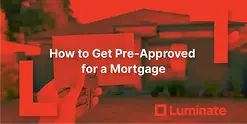Your Team for Buying a First Home in NZ: Complete Guide
 By
Trent Bradley
·
19 minute read
By
Trent Bradley
·
19 minute read

When you imagine buying your first home, it can feel like a simple equation. There's you, possibly your partner, the bank, and the person selling the house. Job done.
Table of Contents
- Why You Need a Professional Team (Not Just the Bank)
- Your Complete First-Home Buyer Team: Overview
- 1. The Mortgage Adviser: Your First and Most Important Contact
- 2. The Property Lawyer (or Conveyancer): Protecting Your Legal Interests
- 3. The Building Inspector: Your Property Detective
- 4. The Real Estate Agent: Understanding Their Role
- 5. The Insurance Adviser: Protecting Your Asset
- 6. The Bank Valuer: Assessing Property Value for the Lender
- 7. The Loan Officer/Bank Credit Analyst: Processing Your Application
- 8. Optional Team Members: When You Might Need Them
- How Your Team Works Together: The Process Flow
- Total Team Costs: What to Budget
- Common Mistakes First-Home Buyers Make With Their Team
- How Luminate Supports Your Entire Team
- Frequently Asked Questions About Your First-Home Buying Team
- Take the First Step: Assemble Your Team
Key Takeaways
- Your mortgage adviser is your first and most critical contact – Engage 3-6 months before house hunting to assess readiness, secure pre-approval from 15-25+ lenders, negotiate better rates (often 0.10-0.25% lower), and coordinate your entire team at zero cost to you (bank-paid commission).
- Core team members are non-negotiable – Mortgage adviser (free), property lawyer ($1,500-$3,000), and building inspector ($500-$1,200) form your essential team; total professional costs of $2,200-$5,700 protect your much larger investment and prevent costly mistakes.
- Building inspections deliver extraordinary ROI – Never skip the $500-$1,200 inspection to save money; inspectors routinely identify issues worth $10,000-$100,000+ that you can negotiate off the purchase price or use to withdraw from a bad deal—potential ROI exceeds 4,000%.
- Real estate agents work for sellers, not buyers – Understand agents are paid 2-4% commission by vendors to maximise sale price; be professional but rely on your own team for advice, never share your maximum budget, and don't feel pressured by urgency tactics.
- Property lawyers must be engaged before making offers – Secure representation before submitting any offer so they can review Sale and Purchase Agreements, include appropriate conditional clauses, conduct proper due diligence on title and LIM reports, and protect your legal interests throughout the $1,500-$3,000 process.
- Team coordination determines process success – Your mortgage adviser orchestrates communication between lawyer, inspector, insurer, lender, and agent across seven distinct phases from preparation through settlement, preventing delays and ensuring nothing falls through the cracks.
- Timing of engagement is critical for each professional – Mortgage adviser first (3-6 months early), lawyer before offers, building inspector immediately after conditional offer accepted, insurance adviser 2-4 weeks before settlement; wrong timing causes delays, complications, or missed opportunities.
- Professional fees are investments, not expenses – Attempting to save $2,000-$5,000 in professional fees often costs $30,000-$100,000+ through higher interest rates, missed property issues, poor legal protection, or purchasing unsuitable properties; expert guidance provides exponential returns on modest investment.
But in reality, there's a team of professionals working behind the scenes to make your homeownership journey possible. Each one plays a distinct and important role. Together, they help you make smarter decisions, avoid costly mistakes, and navigate the process with confidence.
At Luminate Financial Group, we've guided hundreds of first-home buyers through this process. One of the most common questions we hear is: "Who exactly do I need on my team, and what does each person do?"
This comprehensive guide explains every professional you'll encounter when buying your first home in New Zealand, their specific roles, typical costs, how to choose the right people, and when to engage them in the process.
Why You Need a Professional Team (Not Just the Bank)
Many first-time buyers think they can handle everything themselves by going directly to their bank. While this is technically possible, it's rarely the smartest approach.
The Problem With Going It Alone
What happens when you try to handle everything yourself:
- You're negotiating with professionals while you're a novice
- You miss issues that experts would catch immediately
- You make decisions without understanding full implications
- You have no advocate when problems arise
- You waste time learning what experts already know
- You often pay more (higher rates, missed problems, poor terms)
The reality: Buying property is complex, high-stakes, and full of legal and financial implications. Trying to save money by skipping professional help usually costs far more in the long run.
The Value of Expert Guidance
What the right team provides:
- Expert knowledge: Years of experience applied to your situation
- Problem prevention: Catch issues before they become expensive
- Negotiating power: Better rates, terms, and prices
- Time savings: Handle complex tasks efficiently
- Risk mitigation: Protect you from costly mistakes
- Advocacy: Someone in your corner when challenges arise
- Peace of mind: Confidence you're making informed decisions
Investment vs. cost: Professional fees are an investment in protecting what's likely your largest purchase.
Your Complete First-Home Buyer Team: Overview
Here's everyone you'll work with during the home buying journey:
| Professional | Primary Role | Who They Work For | Typical Cost | When to Engage |
|---|---|---|---|---|
| Mortgage Adviser | Secure finance and structure loan | You (the buyer) | $0 (bank-paid) | First - before house hunting |
| Property Lawyer | Legal aspects and settlement | You (the buyer) | $1,500-$3,000 | Before making offers |
| Building Inspector | Assess property condition | You (the buyer) | $500-$1,200 | Before going unconditional |
| Real Estate Agent | Facilitate sale | Seller (not you) | $0 to you | During property search |
| Insurance Adviser | Arrange property insurance | You (the buyer) | $0 (usually) | Before settlement |
| Bank Valuer | Assess property value for lender | The bank | $0-$800 | During finance approval |
| Loan Officer | Process loan application | The bank | $0 (built into rate) | During approval |
| Accountant | Financial/tax advice if needed | You (the buyer) | $150-$400/hour | If self-employed or complex |
Let's explore each team member in detail.
1. The Mortgage Adviser: Your First and Most Important Contact
Your mortgage adviser is often your first professional contact and the most important member of your team. They're your guide, advocate, and coordinator throughout the entire process.
What a Mortgage Adviser Actually Does
Core responsibilities:
Pre-purchase phase:
- Assess your financial position comprehensively
- Calculate realistic borrowing capacity
- Explain lending criteria and requirements
- Identify gaps and create improvement plan if needed
- Provide document checklist and guidance
- Secure pre-approval from suitable lender(s)
Property search phase:
- Review properties for bank acceptability before you offer
- Advise on lending implications of property types
- Confirm financing is viable for specific properties
- Help understand what you can realistically afford
Application phase:
- Compare products across 15-25+ lenders
- Recommend optimal loan structure for your goals
- Negotiate rates and terms on your behalf
- Submit applications professionally
- Liaise with banks throughout assessment
- Troubleshoot any issues that arise
Settlement phase:
- Coordinate with lawyer and lender
- Ensure all conditions satisfied
- Confirm loan ready for settlement
- Arrange insurance if needed
- Finalize all documentation
Post-settlement:
- Annual mortgage reviews
- Rate monitoring and refinancing advice
- Support for renovations or changes
- Ongoing financial guidance
Mortgage Adviser vs. Going Direct to Bank
| Factor | Mortgage Adviser | Going Direct to Bank |
|---|---|---|
| Lender access | 15-25+ lenders | 1 lender only |
| Product comparison | Compare all options | See one bank's products |
| Rate negotiation | Often negotiate 0.10-0.25% better | Take advertised rate |
| Time investment | One application, multiple options | Repeat process at each bank |
| Expertise | Specialist knowledge | Generalist bank staff |
| Advocacy | Works for you | Works for bank |
| Cost to you | $0 (bank pays commission) | $0 (no direct fees either way) |
| Ongoing support | Annual reviews and guidance | Must initiate yourself |
Why advisers often secure better rates: High-volume brokers place significant business with lenders, giving them negotiating power individual buyers don't have.
How Mortgage Advisers Are Paid
Commission structure:
- Paid by the lender, not you
- Typically 0.60-0.85% of loan amount
- Paid when loan settles
- Built into interest rate (same whether you use adviser or not)
- No upfront fees in most cases
Example: $600,000 loan = $3,600-5,100 commission from bank
Important: This commission exists whether you use an adviser or go direct. Banks don't give you a discount for skipping the adviser—they just keep the commission themselves.
How to Choose the Right Mortgage Adviser
Key qualities to look for:
1. Experience and qualifications:
- Licensed and registered (check FSPR register)
- Minimum 3-5+ years experience
- Specializes in first-home buyers
- Up-to-date with regulations and products
2. Lender panel breadth:
- Access to major banks (ANZ, ASB, BNZ, Westpac, Kiwibank)
- Second-tier banks (TSB, SBS, Co-op)
- Non-bank lenders for difficult scenarios
- At least 15+ lenders on panel
3. Communication and service:
- Responsive and available
- Explains clearly in plain language
- Patient with questions
- Proactive about updates
- Returns calls/emails promptly
4. Approach and philosophy:
- Educates rather than just processes
- Honest about readiness (won't push if you're not ready)
- Focuses on your long-term success
- Provides ongoing support post-settlement
5. Reviews and referrals:
- Positive Google reviews
- Referred by people you trust
- Testimonials from first-home buyers
- Professional reputation
Questions to ask potential advisers:
- How many lenders do you work with?
- How long have you specialized in first-home buyers?
- What's your typical process and timeline?
- How do you communicate and how often?
- Will you review my mortgage annually?
- Can you provide references from recent first-home buyer clients?
Red flags to avoid:
- Pressure to apply before you're ready
- Only works with 1-2 lenders
- Unresponsive or hard to reach
- Dismissive of your questions
- No ongoing relationship after settlement
When to Engage Your Mortgage Adviser
Ideal timing: 3-6 months before you plan to start seriously house hunting
Why this early:
- Assess readiness and create preparation plan if needed
- Time to address any issues (debt, credit, employment)
- Understand realistic budget before viewing properties
- Secure pre-approval so you're ready to move quickly
- Build relationship and trust
At Luminate, we welcome conversations even 12+ months before purchase—helping you prepare properly sets you up for success.
2. The Property Lawyer (or Conveyancer): Protecting Your Legal Interests
Your lawyer handles all legal aspects of your property purchase. This is not an area to DIY or cut corners.
What a Property Lawyer Does
Pre-offer phase:
- Explain legal process and requirements
- Review standard agreements
- Advise on offer structure and conditions
Offer and negotiation phase:
- Draft or review Sale and Purchase Agreement
- Include appropriate conditional clauses
- Negotiate terms and conditions
- Advise on legal risks or issues
Due diligence phase:
- Review Land Information Memorandum (LIM)
- Check title for encumbrances, easements, covenants
- Identify any legal issues or restrictions
- Confirm chattels and fixtures included
- Review body corporate documents (if applicable)
- Advise on implications of findings
Settlement phase:
- Coordinate with seller's lawyer
- Arrange for deposit payment
- Confirm all conditions satisfied
- Prepare settlement statement
- Register title transfer and mortgage
- Arrange for keys release
- Provide post-settlement documentation
Lawyer vs. Conveyancer: What's the Difference?
| Factor | Licensed Conveyancer | Property Lawyer |
|---|---|---|
| Can handle | Standard property transactions | All property transactions plus complex legal issues |
| Cost | Slightly cheaper ($1,200-$2,000) | More expensive ($1,500-$3,000) |
| Complex issues | Must refer to lawyer | Can handle in-house |
| Broader legal advice | Not qualified | Can provide |
| Best for | Straightforward freehold titles | Any property, especially if complex |
Our recommendation: For your first home, use a lawyer. The extra $300-500 is worth it for the broader expertise, especially if issues arise.
Typical Legal Fees Breakdown
Standard first-home purchase:
- Professional fees: $1,200-$2,500
- Disbursements (searches, registration): $300-$500
- GST: On professional fees
- Total: $1,500-$3,000
What's included:
- All legal work described above
- Title searches and registrations
- Liaison with all parties
- Settlement coordination
- Post-settlement documentation
What's extra:
- LIM report (you pay council directly: $200-400)
- If sale doesn't proceed (may charge partial fee)
- Extra complex issues or disputes
- Property outside their usual area (travel)
How to Choose Your Property Lawyer
Key selection criteria:
1. Property law specialization:
- Focus on residential conveyancing
- Experience with first-home buyers
- Up-to-date with property law changes
- Member of NZ Law Society
2. Location and accessibility:
- Based in your area (knows local quirks)
- Easy to meet in person if needed
- Accessible by phone/email
- Reasonable response times
3. Communication style:
- Explains things clearly
- Patient with first-timer questions
- Proactive about updates
- Available when you need them
4. Reputation and reviews:
- Recommended by mortgage adviser
- Positive Google/Facebook reviews
- Known for smooth settlements
- Professional standing
5. Fee transparency:
- Clear fee structure upfront
- No hidden costs
- Detailed quotes provided
- Value for money
Questions to ask:
- What's your experience with first-home buyers?
- What's included in your fee?
- What's your typical response time?
- How do you handle issues that arise?
- Will you be personally handling my transaction or will it be delegated?
When to Engage Your Lawyer
Ideal timing: Before making any offers
Why this early:
- Understand legal process before committing
- Have them review agreement before signing
- Ensure all appropriate conditions included
- Immediate action if offer accepted
Don't wait until offer is accepted—delays can cause problems.
3. The Building Inspector: Your Property Detective
A building inspector thoroughly assesses the property's condition before you finalize the purchase. This is one of the best investments you'll make.
What a Building Inspector Does
Comprehensive property assessment:
Exterior inspection:
- Roof condition and weatherproofing
- Cladding and exterior walls
- Windows and doors
- Foundations and sub-structure
- Drainage and guttering
- Fences, decks, and outdoor structures
Interior inspection:
- Structural integrity
- Wall and ceiling condition
- Floor condition and levelness
- Moisture and dampness
- Electrical safety (visual only)
- Plumbing (visual only)
- Insulation presence
Systems and features:
- Heating systems
- Hot water system
- Ventilation
- Building code compliance (visible)
What they DON'T do:
- Electrical certification (need separate electrician)
- Detailed plumbing inspection (need separate plumber)
- Invasive investigation (no walls opened)
- Guarantee future performance
- Provide exact repair costs
Deliverable: Detailed written report (30-80+ pages) with:
- Photos of all issues
- Severity ratings (minor/moderate/major)
- Maintenance recommendations
- Areas requiring specialist assessment
- Summary of key findings
Why Building Inspections Are Essential
What inspectors commonly find:
- Weathertightness issues (water ingress)
- Structural movement or defects
- Hidden rot or decay
- Electrical hazards
- Plumbing problems
- Inadequate drainage
- Unconsented work
- Safety hazards
Cost of skipping inspection:
Example scenarios:
- Skip $800 inspection
- Buy property with hidden rot
- Discover $35,000 re-cladding needed
- Could have negotiated $35,000 off price or walked away
Inspection cost: $800. Potential savings: $35,000. ROI: 4,275%
Never skip the building inspection to save money. It's the cheapest insurance policy you'll ever buy.
Building Inspector Costs
| Property Type | Typical Cost | Inspection Time |
|---|---|---|
| Small apartment (50-80sqm) | $400-$600 | 1-2 hours |
| Standard house (100-200sqm) | $500-$800 | 2-3 hours |
| Large house (200-300sqm) | $700-$1,000 | 3-4 hours |
| Very large/complex property | $900-$1,500+ | 4-6 hours |
| Multi-unit property | $1,000-$2,000+ | Varies |
Additional specialist inspections:
- Electrical inspection: $200-$400
- Plumbing inspection: $200-$400
- Methamphetamine test: $400-$700
- Asbestos test: $400-$800
- Structural engineer: $800-$1,500+
How to Choose a Building Inspector
Essential qualifications:
- Licensed Building Practitioner (check LBP register)
- Member of NZ Institute of Building Inspectors (NZIBI) or similar
- Professional indemnity insurance
- Minimum 10+ years building experience
Key qualities:
- Thorough and meticulous
- Clear communication
- Detailed reports
- Available for follow-up questions
- Willing to attend with you (recommended)
Questions to ask:
- Are you a Licensed Building Practitioner?
- What's included in your inspection?
- How long will the inspection take?
- When will I receive the report?
- Can I attend the inspection?
- What happens if you find major issues?
- Do you have professional indemnity insurance?
Red flags:
- Not licensed
- Rushed inspections (under 90 minutes)
- Vague or brief reports
- Dismissive of concerns
- Unavailable for questions
When to Book Your Building Inspector
Timing: Immediately after offer accepted (if conditional)
Process:
- Offer accepted with building inspection condition
- Book inspector within 1-2 days
- Inspection completed within 5-10 days
- Receive report within 24-48 hours
- Review with adviser and lawyer
- Decide: proceed, renegotiate, or withdraw
For auctions: Must complete inspection BEFORE auction day (inspection is unconditional)
4. The Real Estate Agent: Understanding Their Role
You'll interact with many real estate agents during your property search. Understanding their role helps you navigate these relationships effectively.
What Real Estate Agents Actually Do
For the seller (their client):
- Market the property effectively
- Conduct open homes and viewings
- Qualify potential buyers
- Present offers and negotiate terms
- Manage sale process to settlement
- Achieve best possible price and terms
Their interaction with you:
- Show you through properties
- Answer questions about property
- Provide available documentation
- Communicate offers and responses
- Facilitate negotiations
- Coordinate settlement logistics
Critical understanding: The agent works for the seller, not you. They're professional and regulated, but their obligation is to achieve the best outcome for the vendor.
How Agents Are Paid
Commission structure:
- Paid by seller only (not you)
- Typically 2-4% of sale price + GST
- Plus marketing costs (sometimes)
- Paid at settlement
Example: $650,000 sale at 3% = $19,500 commission to agency
This structure creates incentive to:
- Maximize sale price
- Close deals quickly
- Present you as strong buyer
- Downplay property issues
Not dishonest, just business reality. Understanding this helps you navigate conversations appropriately.
How to Work Effectively With Agents
Do:
- Be polite and professional
- Ask direct questions
- Request all documentation
- Take your time with decisions
- Use your own professionals for advice
- Negotiate through your lawyer
Don't:
- Share your maximum budget
- Rely solely on agent's property opinions
- Feel pressured by urgency tactics
- Make unconditional offers without due diligence
- Bypass your own advisers
- Share financial details unnecessarily
Key questions to ask agents:
- How long has property been listed?
- Have there been price reductions?
- Are building/LIM reports available?
- What's the sale method and timeline?
- Why is the vendor selling?
- Are there any known issues?
See our complete guide: "How to Work With Real Estate Agents as a First-Home Buyer" for detailed strategies.
Understanding Agent Motivations
Agents are incentivized by:
- Higher sale prices (more commission)
- Quick sales (move to next listing)
- Certainty of sale (avoid wasted time)
This isn't criticism—it's understanding the business model.
Protect yourself by:
- Having your own team (adviser, lawyer, inspector)
- Doing independent due diligence
- Not rushing major decisions
- Questioning claims and verifying information
- Making informed decisions rather than emotional ones
5. The Insurance Adviser: Protecting Your Asset
Before settlement, you'll need home and contents insurance. Many buyers arrange this through an insurance adviser.
What an Insurance Adviser Does
Core services:
- Assess your insurance needs
- Explain different policy types and coverage levels
- Compare policies across multiple insurers
- Recommend appropriate coverage amounts
- Negotiate premiums and terms
- Handle policy setup and documentation
- Provide ongoing policy reviews and claims support
Types of insurance for homeowners:
Essential (required for settlement):
- Home insurance: Covers building/structure
- Contents insurance: Covers belongings (often combined)
Recommended:
- Mortgage repayment insurance: Covers repayments if unable to work
- Income protection: Replaces income if sick/injured
- Life insurance: Pays mortgage if you die
Insurance Adviser Costs
Typical fee structure:
- No direct cost to you in most cases
- Paid commission by insurance company
- Similar to mortgage advisers
- Commission built into premiums
Some advisers charge:
- Flat fee: $100-$300 for policy setup
- Annual review fee: $50-$200
- Varies by adviser and service level
DIY Insurance vs. Using an Adviser
| Factor | DIY (Direct to Insurer) | Using Adviser |
|---|---|---|
| Cost | May be slightly cheaper | Commission built in (usually minimal difference) |
| Options | Limited to one insurer | Multiple insurers compared |
| Expertise | Must understand yourself | Expert guidance |
| Claims support | Direct to insurer | Adviser advocates for you |
| Ongoing reviews | Must remember yourself | Proactive annual reviews |
Our take: For your first home, using an adviser often provides better value through comprehensive coverage, competitive pricing, and claims support—worth any small additional cost.
When to Arrange Insurance
Timing: 2-4 weeks before settlement
Process:
- Get property details from lawyer
- Contact insurance adviser
- Get quotes and coverage options
- Select appropriate policy
- Confirm coverage starts at settlement
- Provide proof to lender
Critical: Insurance MUST be active from settlement date. Lenders won't release funds without proof.
6. The Bank Valuer: Assessing Property Value for the Lender
The bank orders an independent valuation to confirm the property is worth what you're paying.
What Bank Valuers Do
Valuation process:
- Physical inspection of property
- Assess condition and features
- Review recent comparable sales
- Consider location and market trends
- Determine current market value
- Provide written valuation report to bank
Key point: Valuer works for the bank, not you. Their job is protecting the bank's security.
Valuation Outcomes
Three possible results:
1. At or above purchase price (ideal):
- Bank happy to lend
- No issues proceeding
- Application moves forward
2. Slightly below purchase price (5-10%):
- Bank may still lend but at lower amount
- You need to increase deposit to cover gap
- Negotiate with seller to reduce price
- Or withdraw using finance condition
3. Significantly below purchase price (10%+):
- Bank likely won't lend full amount
- Major deposit increase needed
- Renegotiate substantially or withdraw
- Consider getting second opinion
Valuation Costs
Who pays:
- Usually the bank (built into application)
- Sometimes applicant pays upfront ($400-800)
- Varies by lender and situation
You can order your own independent valuation beforehand ($600-900) if you're concerned about property value, but not required.
What If Valuation Comes In Low?
Your options:
Option 1: Increase deposit
- Cover the gap yourself
- Requires having extra funds available
- Maintains purchase at agreed price
Option 2: Renegotiate purchase price
- Use low valuation as leverage
- Seller may accept lower price
- Common and reasonable approach
Option 3: Get second valuation
- Some lenders allow this (costs $600-900)
- If significantly different, may help
- Not guaranteed to be higher
Option 4: Try different lender
- Different bank may value differently
- Your adviser can arrange this
- Takes extra time
Option 5: Withdraw from purchase
- Use finance condition to exit
- Get deposit back
- Find different property
Your mortgage adviser guides you through these options based on circumstances.
7. The Loan Officer/Bank Credit Analyst: Processing Your Application
This is the person at the bank who assesses your loan application and makes the approval decision.
What Loan Officers Do
Application assessment:
- Review all documentation submitted
- Verify income and employment
- Assess affordability and serviceability
- Review credit history
- Order property valuation
- Check banking conduct
- Apply bank's lending criteria
- Approve, decline, or request more information
You may never meet them directly if using a mortgage adviser—your adviser liaises with them on your behalf.
How to Make the Loan Officer's Job Easy
Best practices:
- Provide complete documentation upfront
- Respond quickly to any requests
- Ensure bank statements are clean
- Have explanations ready for any issues
- Don't make major financial changes during assessment
What loan officers love:
- Organized, complete applications
- Clean financial history
- Responsive applicants
- Straightforward scenarios
What frustrates them:
- Incomplete documentation
- Unexplained transactions
- New debts during assessment
- Dishonest or hidden information
Your mortgage adviser handles most of this liaison, making the process smoother.
8. Optional Team Members: When You Might Need Them
Beyond the core team, you might need additional specialists depending on your situation.
Accountant
When needed:
- You're self-employed
- Complex income structure
- Tax planning advice required
- Investment property considerations
What they provide:
- Financial statements for loan application
- Tax advice and structuring
- Business/trust setup if needed
- Ongoing financial advice
Cost: $150-$400/hour or fixed fee packages
Financial Planner
When helpful:
- Need broader financial strategy
- Retirement planning alongside property
- Investment portfolio management
- Comprehensive financial planning
Cost: $150-$400/hour or annual retainer
Structural Engineer
When required:
- Building inspector identifies structural concerns
- Property built on challenging land
- Visible structural issues
- Older property with movement
- Bank requires engineer report
Cost: $800-$2,000+ for detailed assessment
Quantity Surveyor
When helpful:
- Buying off-the-plan property
- Considering major renovations
- Need accurate cost estimates
- Insurance rebuild valuations
Cost: $500-$1,500 depending on scope
Pest Inspector
When needed:
- Wooden structures showing damage
- Areas prone to borer or termites
- Old villas and weatherboard homes
- Recommended by building inspector
Cost: $300-$600
Electrician (Certified)
When required:
- Building inspector flags electrical concerns
- Very old wiring systems
- Major electrical issues visible
- Bank requires electrical certificate
Cost: $200-$600 for inspection and certification
Plumber (Specialist Inspection)
When needed:
- Building inspector identifies plumbing concerns
- Very old plumbing systems
- Drainage issues suspected
- Water pressure problems
Cost: $200-$500 for specialist inspection
How Your Team Works Together: The Process Flow
Understanding how all these professionals interact helps you coordinate effectively.
Timeline and Coordination
Phase 1: Preparation (3-6 months before)
- Engage: Mortgage adviser
- Actions: Assess readiness, prepare finances, get pre-approved
- Result: Ready to seriously house hunt
Phase 2: Property Search (2-12 weeks)
- Active: Mortgage adviser (property reviews), Real estate agents (viewings)
- Actions: View properties, assess options, shortlist possibilities
- Result: Find property you want to purchase
Phase 3: Making an Offer (1-7 days)
- Engage: Property lawyer (if not already)
- Active: Lawyer (draft/review offer), Adviser (confirm financing viable), Agent (negotiate)
- Actions: Make conditional offer, negotiate terms
- Result: Accepted offer with conditions
Phase 4: Due Diligence (10-20 business days)
- Engage: Building inspector, Insurance adviser
- Active: Inspector (assess property), Lawyer (review LIM/title), Adviser (finalize loan), Bank valuer (assess value)
- Actions: Complete all checks and conditions
- Result: Decision to proceed or withdraw
Phase 5: Going Unconditional (1 day)
- Active: Lawyer (satisfy conditions), Adviser (confirm approval), You (make decision)
- Actions: Waive conditions or withdraw
- Result: Legally committed to purchase
Phase 6: Settlement Preparation (2-6 weeks)
- Active: Lawyer (coordinate settlement), Adviser (finalize documents), Insurance adviser (activate policy), Loan officer (process drawdown)
- Actions: Complete all paperwork, prepare for settlement
- Result: Ready for settlement day
Phase 7: Settlement (1 day)
- Active: Lawyer (manage transfers), Lender (release funds), Agent (arrange keys)
- Actions: Funds transferred, title registered, keys released
- Result: You own your home!
Throughout: Your mortgage adviser coordinates most interactions and keeps you informed.
Total Team Costs: What to Budget
Understanding the complete cost helps you budget appropriately.
| Team Member | Cost Range | Who Pays |
|---|---|---|
| Mortgage Adviser | $0 | Bank pays commission |
| Property Lawyer | $1,500-$3,000 | You |
| Building Inspector | $500-$1,200 | You |
| LIM Report | $200-$400 | You (via council) |
| Insurance Setup | $0-$300 | Usually free (commission-paid) |
| Bank Valuation | $0-$800 | Usually bank pays |
| Real Estate Agent | $0 | Seller pays |
Total out-of-pocket for professionals: $2,200-$5,700
Plus ongoing:
- Insurance premiums: $1,000-$3,000/year
- Legal fees if issues arise: Variable
This investment protects your much larger investment (the property itself).
Common Mistakes First-Home Buyers Make With Their Team
Learn from others' mistakes:
Mistake 1: Not Engaging Mortgage Adviser Early Enough
The problem: Start house hunting without pre-approval, fall in love with property, discover you can't get financing
The solution: Engage adviser 3-6 months before house hunting begins
Mistake 2: Choosing Professionals Based Only on Price
The problem: Select cheapest lawyer or inspector, get poor service or miss major issues
The solution: Choose based on experience, reputation, and value—not just lowest price
Mistake 3: Skipping the Building Inspection
The problem: Save $800, buy property with $30,000+ hidden problems
The solution: ALWAYS get building inspection, even for newer properties
Mistake 4: Not Understanding Agent Represents Seller
The problem: Trust agent completely, share too much information, make poor decisions
The solution: Be professional but understand their role, rely on your own advisers
Mistake 5: Engaging Lawyer Too Late
The problem: Accept offer then find lawyer, legal issues cause delays or problems
The solution: Have lawyer ready before making any offers
Mistake 6: Poor Communication Between Team Members
The problem: Lawyer doesn't know adviser timeline, inspector report not shared properly, delays and confusion
The solution: Ensure all team members can communicate, update everyone on progress
Mistake 7: Not Asking Questions When Unsure
The problem: Don't understand something, afraid to ask, make uninformed decisions
The solution: Ask every question, no matter how basic it seems—good professionals welcome questions
How Luminate Supports Your Entire Team
At Luminate Financial Group, we don't just act as your mortgage adviser—we help coordinate your entire team for a smooth, successful purchase.
Our Comprehensive Support
Team coordination:
- Recommend trusted lawyers, inspectors, and insurance advisers
- Ensure everyone has information they need
- Keep all parties on same timeline
- Troubleshoot communication issues
Process management:
- Guide you through each phase
- Remind you of upcoming deadlines
- Ensure nothing falls through cracks
- Manage complexity on your behalf
Problem solving:
- Address issues before they escalate
- Find creative solutions to challenges
- Advocate for you when needed
- Navigate difficult situations
Education and empowerment:
- Explain everyone's role clearly
- Help you understand what's happening
- Ensure you make informed decisions
- Support you to ask right questions
Our Trusted Professional Network
We work with:
- Experienced property lawyers across NZ
- Licensed building inspectors
- Insurance advisers specializing in home buyers
- Accountants for complex scenarios
- Specialists as needed for unique situations
Benefits of our referrals:
- Pre-vetted for quality and first-home buyer experience
- Good communication and coordination
- Fair pricing and transparent fees
- Proven track records of success
You're never obligated to use our referrals—but our clients appreciate having trusted options.
Frequently Asked Questions About Your First-Home Buying Team
Do I really need all these professionals?
Yes, for the core team: mortgage adviser, property lawyer, and building inspector are essential. Real estate agents you'll encounter naturally. Insurance adviser is highly recommended but you could arrange directly. Others (accountant, specialists) only if your situation requires them.
Can I save money by skipping the building inspection?
Absolutely not. Building inspections typically cost $500-1,200 but can identify issues worth $10,000-$100,000+. It's the best value for money in the entire process. Never skip it to save money.
How do I find trustworthy professionals?
Start with referrals from mortgage adviser, family, friends who recently bought, or online reviews. Verify licenses and qualifications. Interview 2-3 options. Trust your instincts about communication and professionalism.
What if my mortgage adviser recommends specific lawyers or inspectors?
Adviser referrals are usually reliable because they work with these professionals regularly and know who does good work. However, you're not obligated to use them—do your own research too. Most advisers have several options they can recommend.
Can my partner and I use the same lawyer?
Yes, one lawyer can act for both buyers. If you're buying together, this is standard and more cost-effective than two separate lawyers. However, each person should have independent legal advice if interests might conflict.
What happens if my building inspector finds major problems?
You have several options: (1) withdraw using building inspection condition and get deposit back, (2) renegotiate purchase price based on repair costs, (3) ask seller to fix issues before settlement, or (4) proceed accepting the issues. Your adviser and lawyer help you decide.
Do I need a mortgage adviser if I'm going through a bank?
Not technically required, but highly recommended. Advisers provide access to multiple lenders, often negotiate better rates, handle complexity better, and provide ongoing support—all at no cost to you. Why limit yourself to one bank?
How long does it take to assemble my team?
Mortgage adviser: Immediate. Lawyer: Can engage in a day. Building inspector: Book within days. Insurance adviser: Within a week. Your adviser often helps with introductions, speeding up the process. Allow 1-2 weeks to have everyone ready.
What if I can't afford all the professional fees?
The core costs (lawyer $1,500-3,000, building inspection $500-1,200) are unavoidable and should be budgeted for beyond your deposit. If you can't afford these, you're not financially ready to buy. These aren't optional—they protect your much larger investment.
Can I change team members mid-process if I'm not happy?
Yes, but it can cause delays and complications. Choose carefully upfront. If you must change: easier early in process, more difficult once applications submitted or contracts signed. Discuss any concerns with current professional first—often issues can be resolved.
What if my team members give conflicting advice?
Different professionals have different perspectives based on their expertise. Mortgage adviser focuses on financing, lawyer on legal protection, inspector on property condition. Listen to all perspectives, understand their reasoning, then make informed decision. Your mortgage adviser often helps synthesize different views.
Take the First Step: Assemble Your Team
Don't try to navigate the complex first-home buying process alone. Having the right professional team makes the journey smoother, safer, and more successful.
Start With Your Mortgage Adviser
Your mortgage adviser is typically your first contact and helps coordinate everything that follows. Starting here ensures you:
- Understand your financial position and readiness
- Get pre-approved before house hunting
- Have professional guidance from day one
- Get connected with other trusted professionals
- Navigate the process with expert support
Ready to Build Your First-Home Buying Team?
Book your free consultation with Luminate Financial Group today.
In this session, we'll:
- Assess your complete financial position
- Determine your realistic budget and borrowing capacity
- Get you pre-approved and ready to search
- Recommend trusted lawyers, inspectors, and other professionals
- Create your complete timeline and action plan
- Answer all your questions about the process
What you'll leave with:
- Clear understanding of your financial position
- Pre-approval in principle (if ready)
- Referrals to trusted professionals for your team
- Confidence and clarity about next steps
- Expert support throughout your journey
Why Start With Luminate?
We're your advocate and coordinator:
- Guide you through the entire process start to finish
- Help assemble your complete professional team
- Ensure everyone works together smoothly
- Troubleshoot issues before they become problems
- Provide ongoing support beyond settlement
We specialize in first-home buyers:
- Understand the unique challenges you face
- Patient with questions and learning curve
- Focused on your long-term success
- Not just a transaction—a relationship
We make it easy:
- Free initial consultation
- No obligation
- Clear explanations in plain language
- Honest advice about readiness and timeline
- Here for you every step
Contact Luminate Financial Group:
📞 Call 0800 333 400
📧 Email askus@luminate.co.nz
🌐 Visit luminate.co.nz
Your first home is a major milestone—let's make sure you have the right team to make it successful, stress-free, and rewarding.
Disclaimer: This article provides general information and should not be considered professional advice. The specific professionals you need may vary based on your circumstances and the property you're purchasing. Costs mentioned are typical ranges and may vary. Always engage qualified, licensed professionals for legal, financial, and technical advice specific to your situation.

Trent Bradley
Trent Bradley is a New Zealand financial advisor specializing in property-backed finance and investment consulting. With over 26 years of experience running his mortgage broking business, he has helped wholesale investors access high-yield property-backed loan opportunities. For the past 12 years, Trent has led Luminate Finance, a New Zealand finance company dedicated to connecting investors with secure property investment solutions.


























